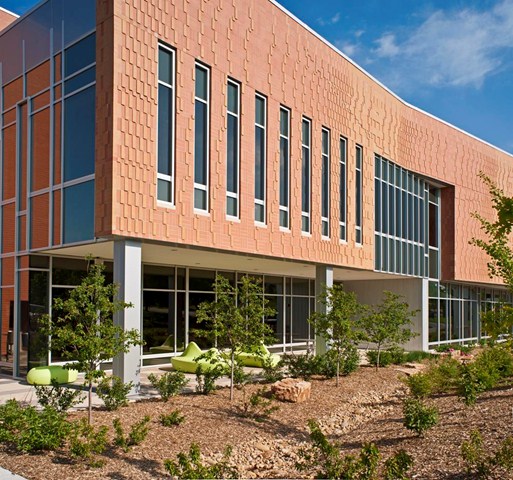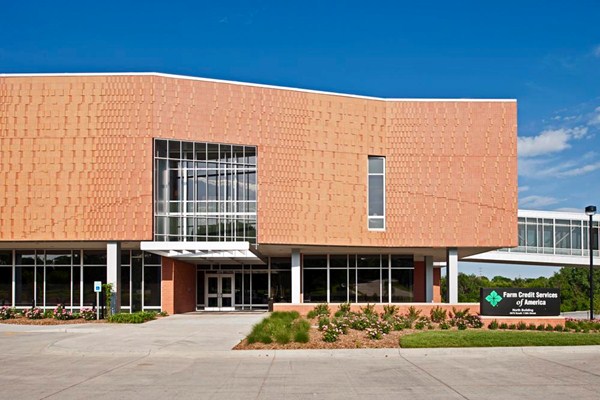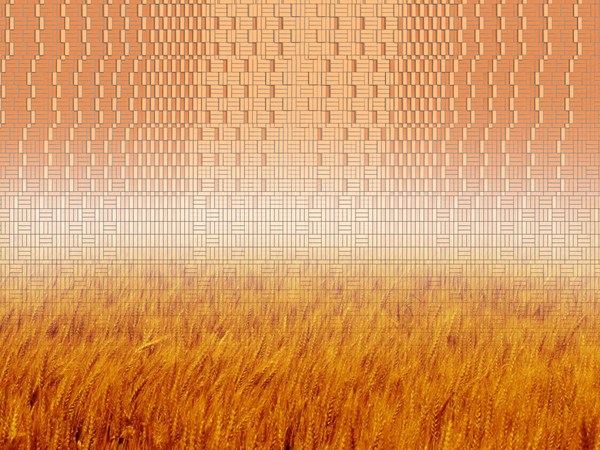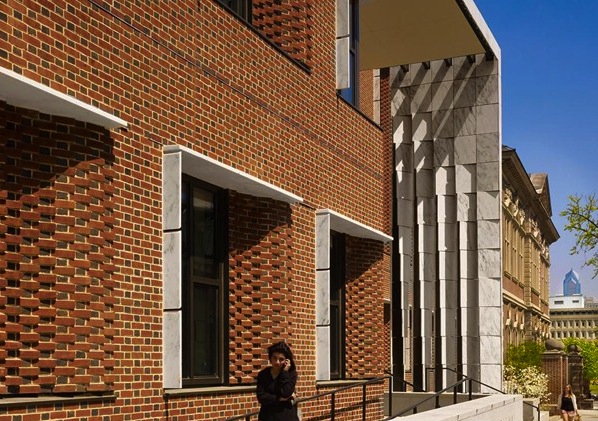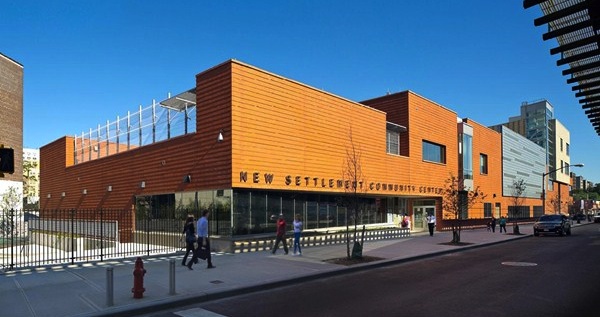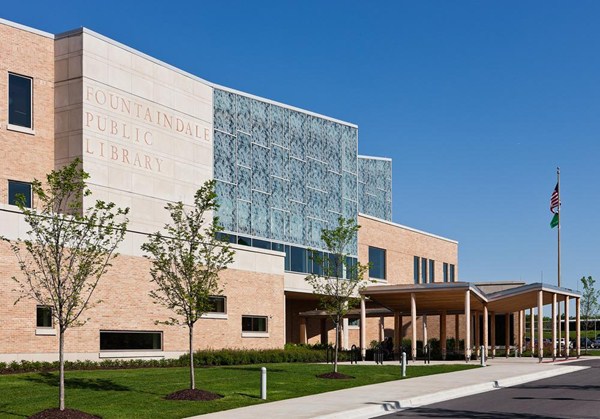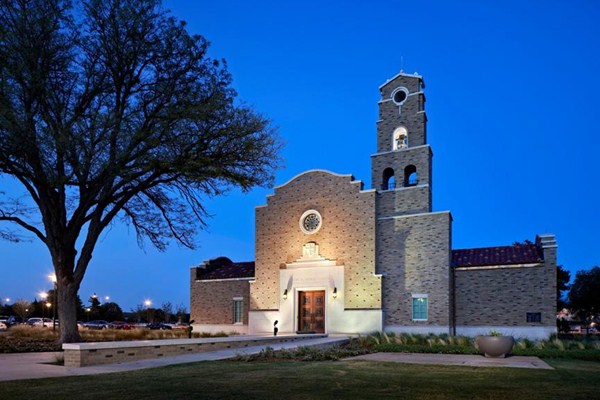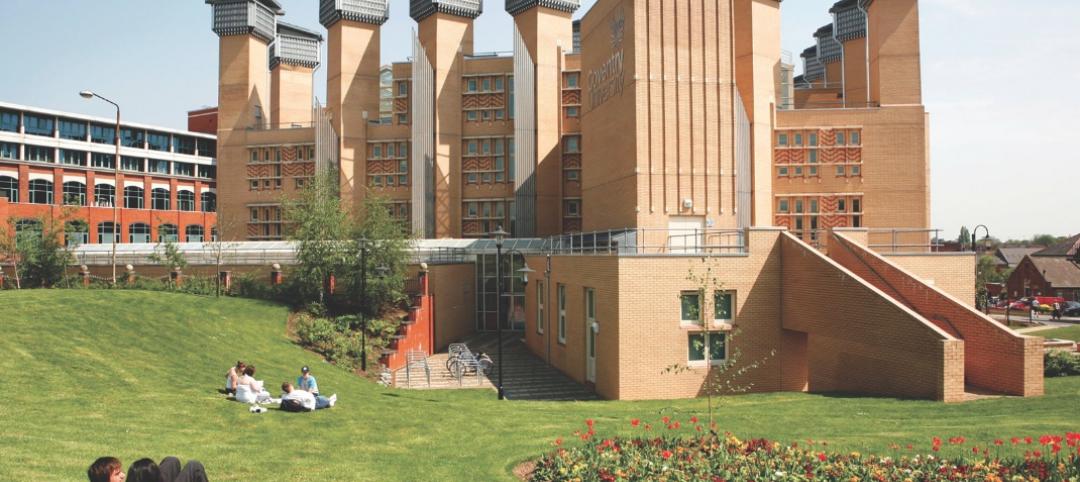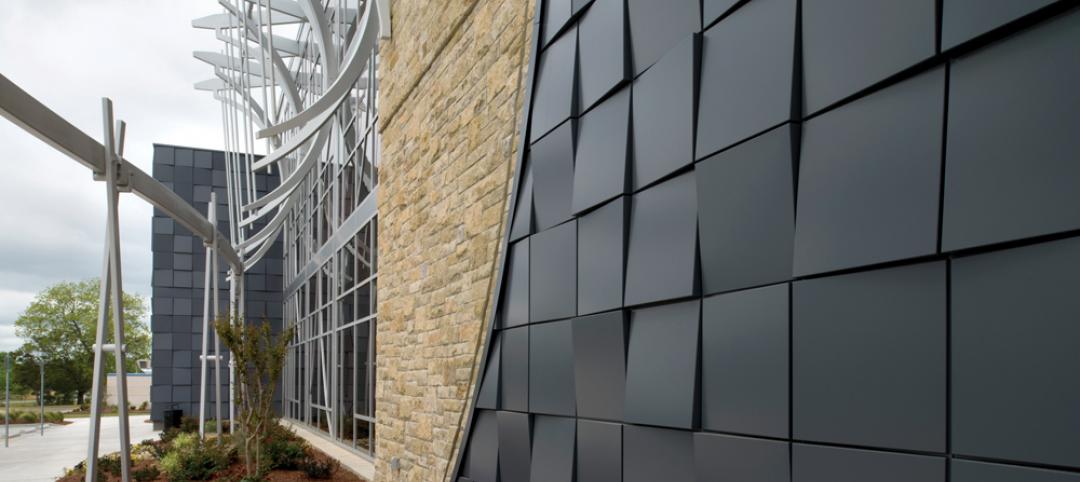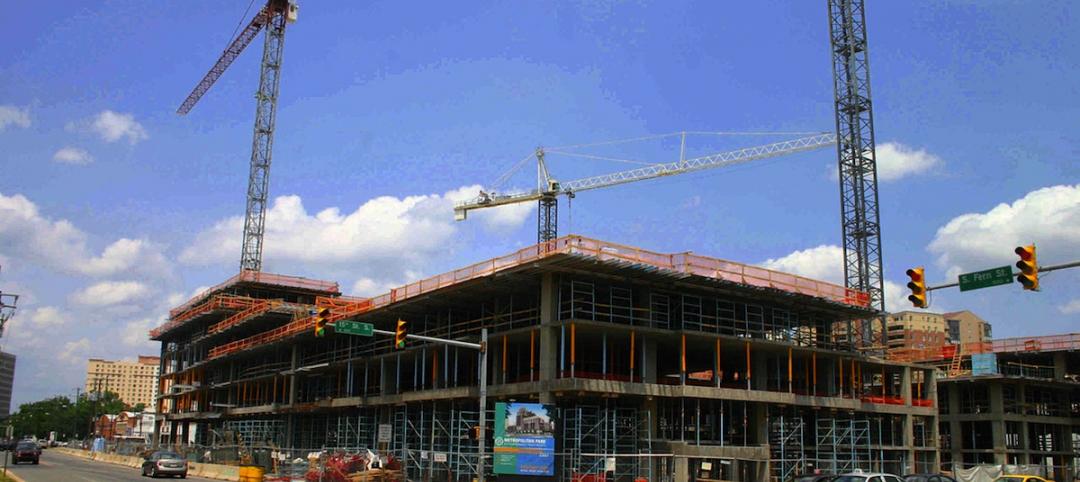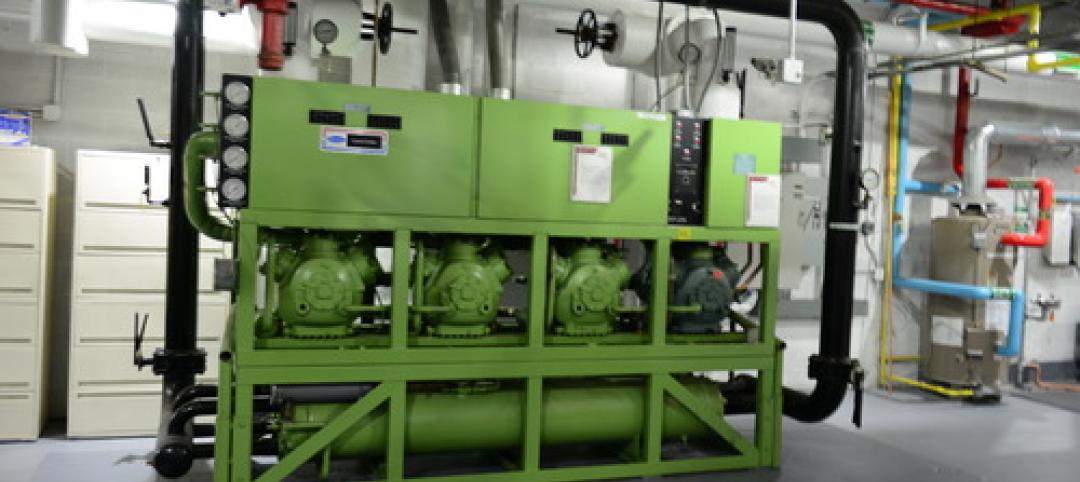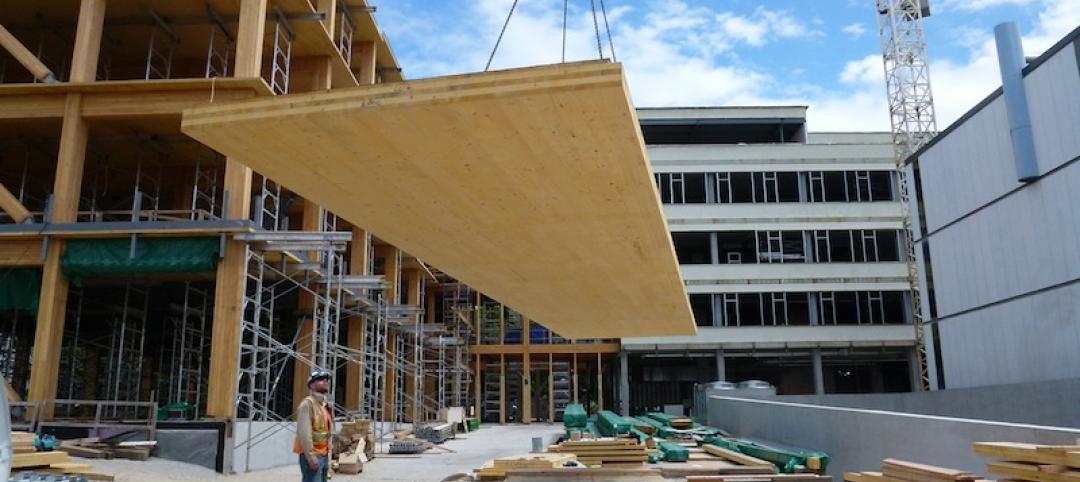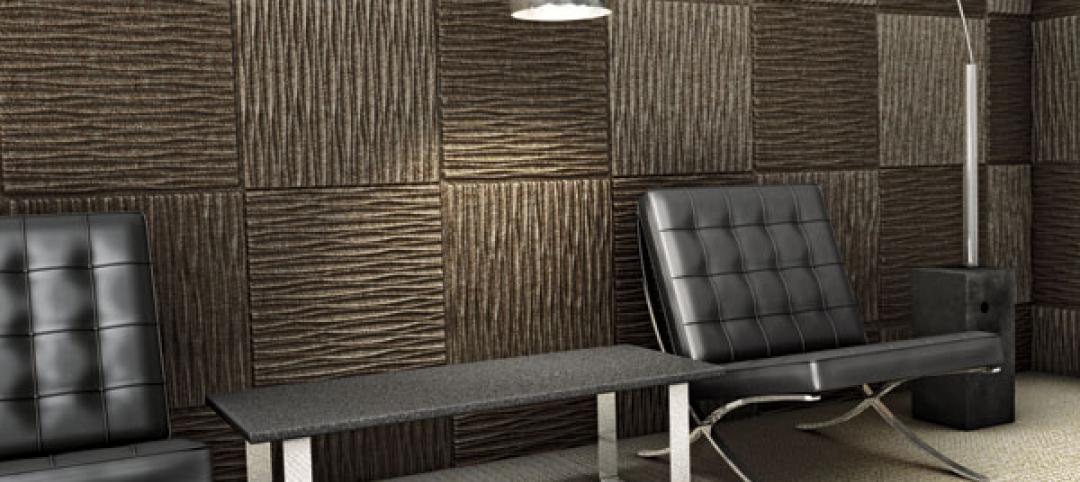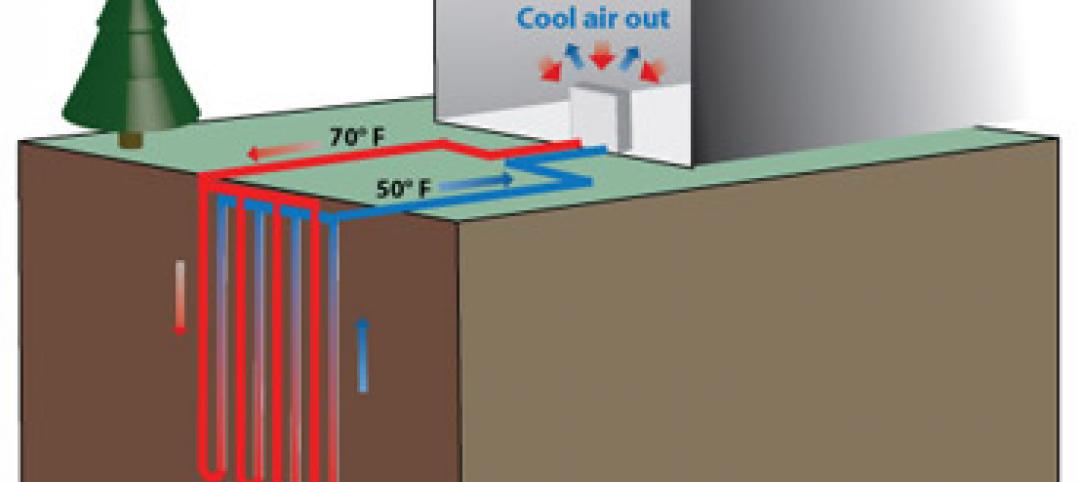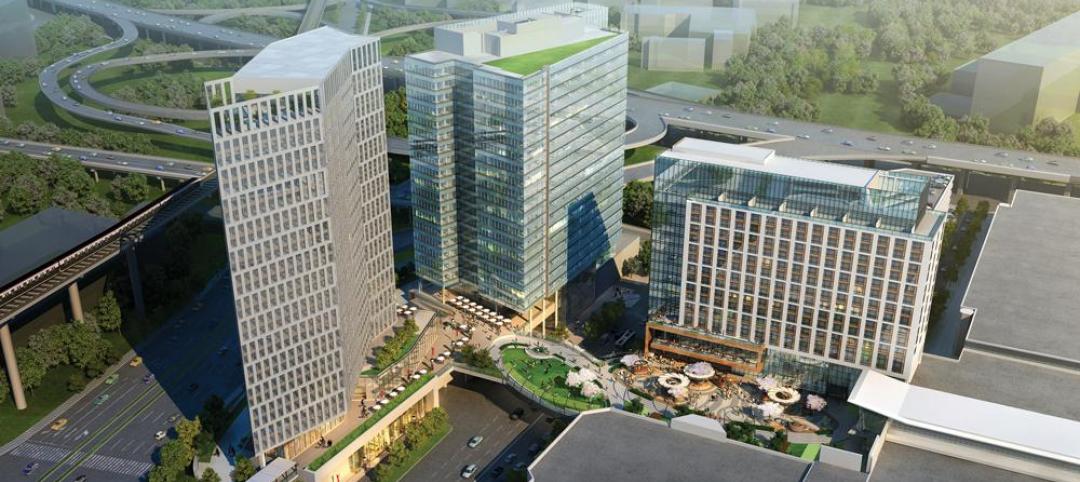Fired clay brick continues to evolve with new color blends, textures, and architectural shapes that inspire innovative and enduring designs. These design trends are evident in the winning projects from the BIA's Brick in Architecture Awards.
Here’s a look at the latest brick design trends based on recent award winners:
1. Unique brick patterns using different depths and orientation
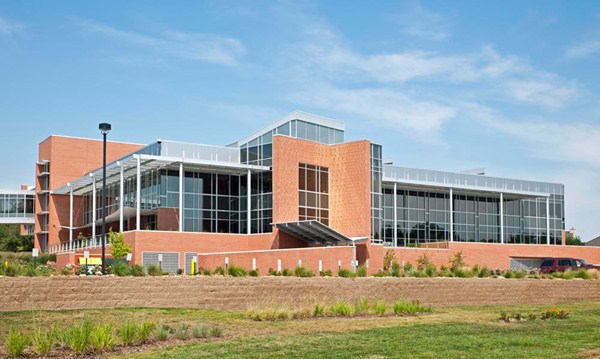
Photos: Scholz Images
For the west façade of the 77,000-sf Farm Credit Services of America Corporate Office Building 2 in Omaha, Neb., Clark Enersen Partners created an abstract representation of wind blowing through a wheat field—using two brick colors at various depths and orientation. The west façade brick also helps minimize late day glare, while openings in the façade still filter natural light through vertical fins.
2. Gray and white shades of brick
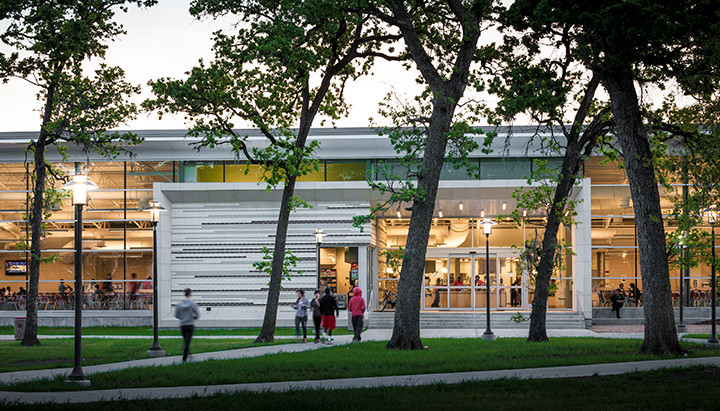
Photos: Slyworks Photography
Cougar Woods Dining Hall, a 25,000-sf pavilion on the University of Houston’s main campus, promotes a passive approach to sustainable design. Designed by PageSoutherlandPage, the dining area has extensive glazing on its north side to provide daylighting within the building, while minimizing heat gain. Solid masonry walls with a lighter color were used to protect the southern and western elevations from the sun and reduce the heat island effect.
In another example, Wormley School Rowhouses in Washington, D.C.’s historic Georgetown neighborhood were painted neutral colors to match the existing neighborhood. While maintaining historic integrity, Cunningham | Quill Architects converted a school building into condominiums and a new row of townhouses built on the adjacent schoolyard.
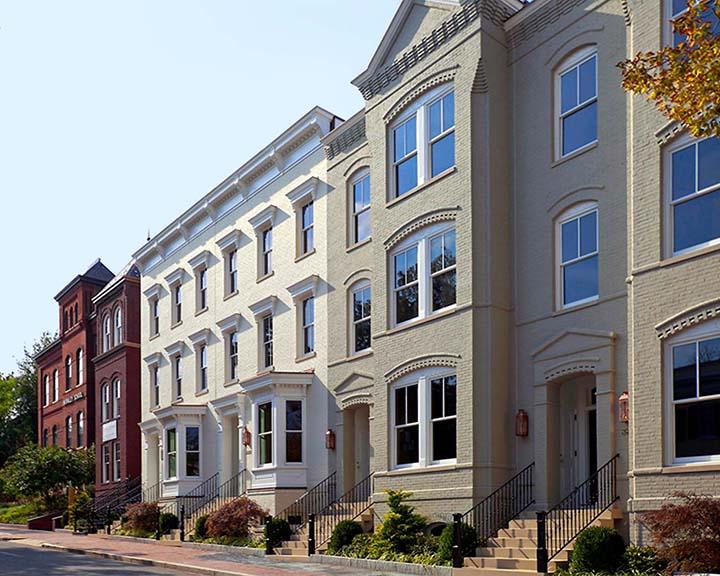
Photo: Chris Morrison
3. Brick for flexibility in color, shape, and form
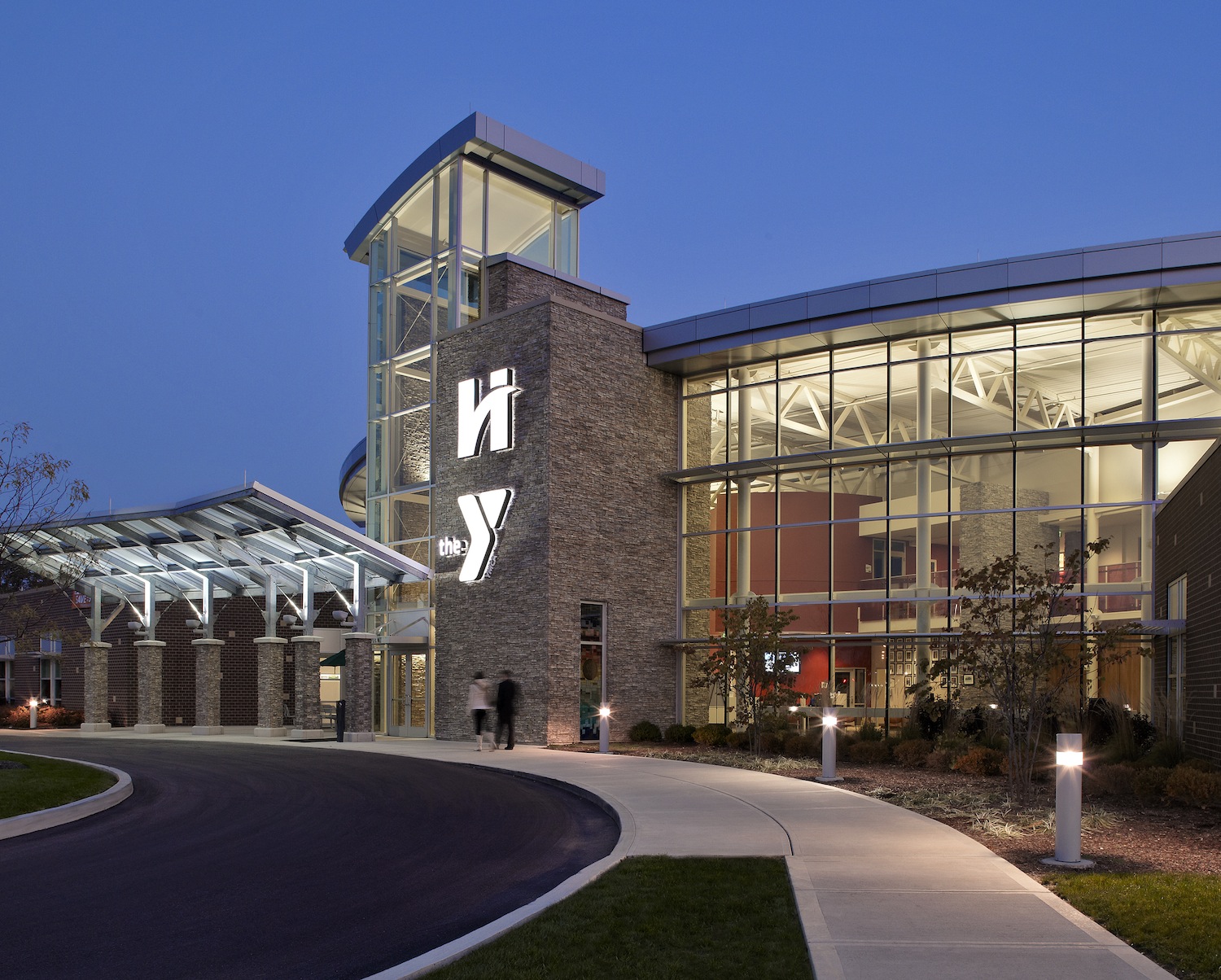
Photos: Tony Frederick Photography
For Hendricks Regional Health YMCA, Avon, Ind., American Structurepoint aimed to celebrate the symbiotic relationship of health and wellness through an integral use of brick and organic forms. Brick was used in areas where there were noise and privacy concerns. A two-tone scheme used a deep brown brick color to anchor the façade and hold up the lighter, buff-colored brick to create a sense of place and familiarity with the hospital brand. Brick easily conformed to the straight, angled, and curved walls throughout the facility.
4. Textures: sanded, artisan, wirecut, and tumbled
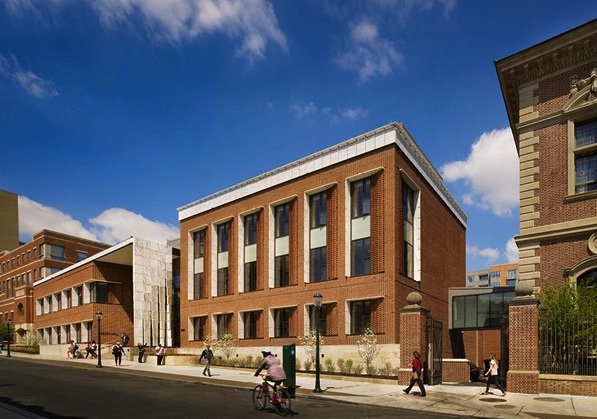
Photos: Halkin Architectural Photography
The University of Pennsylvania Law School uses masonry to define the image of a 21st century law school. One of Penn Law’s primary goals was to unify its campus with the addition of the new Golkin Hall. To do so required maintaining the material presence of Silverman Hall, built for the law school in 1900. Kennedy & Violich Architecture used sand-molded brick and a distinctive Flemish bond pattern used on all subsequent buildings.
5. Contrasting brick colors and course patterns
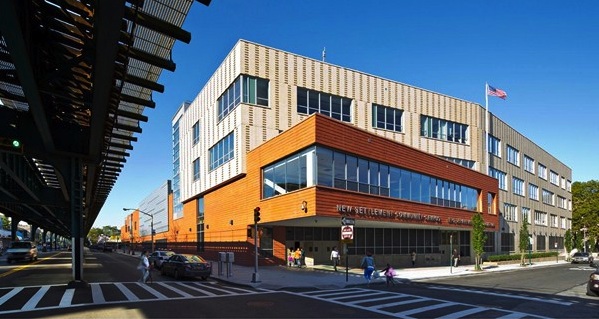
Photos: David Sundberg
The 172,000-sf New Settlement Campus in Bronx, N.Y., houses three schools for 1,000 PK-12 students on a busy urban block. Dattner Architects interplays massing, materials, and patterning to create scale and interest for the block-long building. A two-story, red brick commons wing parallels an elevated subway train, and intersects a four-story buff brick classroom wing that bends away from the street. The contrasting brick colors and course patterns distinguish the two wings. A graduated vertical pattern of darker projecting brick articulates the classroom wing’s cream-colored brick façade, which is perpendicular to the elevated train to minimize noise.
6. Hinge-shaped face brick
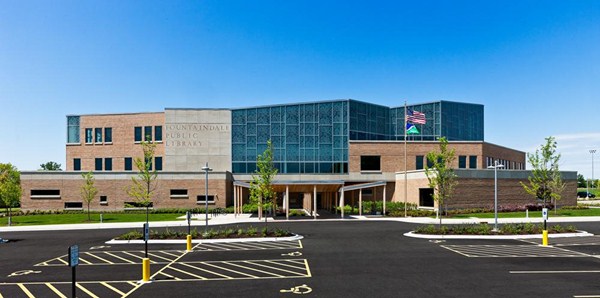
Photos: Ballogg Photography
Fountaindale Public Library in Bolingbrook, Ill., is located in a suburban environment at the confluence of the village’s municipal campus, tract housing, and a recreational park. To facilitate the organic shape of the building’s exterior, Nagle Hartray Architecture used an innovative, single modular size hinge-shaped face brick for 28 different inside and outside corner conditions.
7. Brick to introduce new architectural motifs/ornamentation
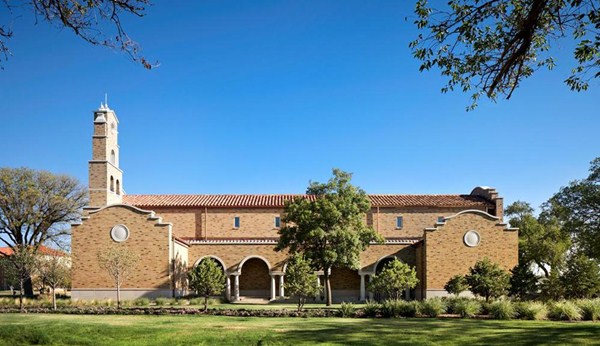
Photos: Dror Baldinger
McKinney York Architects designed the 7,000-sf non-denominational Kent R. Hance Chapel, Lubbock, Texas, in the Spanish Renaissance style of the historic sections of campus. The chapel’s bell tower, curved articulation of the gabled parapet walls and ermine patterning of the principal façade are all instances where brick played a decisive role to introduce new architectural motifs, celebrating only the most important architectural elements.
For more brick designs, see the 2014 and 2013 Brick in Architecture Award winners.
Related Stories
| Jan 11, 2014
Getting to net-zero energy with brick masonry construction [AIA course]
When targeting net-zero energy performance, AEC professionals are advised to tackle energy demand first. This AIA course covers brick masonry's role in reducing energy consumption in buildings.
| Dec 13, 2013
Safe and sound: 10 solutions for fire and life safety
From a dual fire-CO detector to an aspiration-sensing fire alarm, BD+C editors present a roundup of new fire and life safety products and technologies.
| Dec 10, 2013
16 great solutions for architects, engineers, and contractors
From a crowd-funded smart shovel to a why-didn’t-someone-do-this-sooner scheme for managing traffic in public restrooms, these ideas are noteworthy for creative problem-solving. Here are some of the most intriguing innovations the BD+C community has brought to our attention this year.
| Nov 27, 2013
Wonder walls: 13 choices for the building envelope
BD+C editors present a roundup of the latest technologies and applications in exterior wall systems, from a tapered metal wall installation in Oklahoma to a textured precast concrete solution in North Carolina.
| Nov 26, 2013
Construction costs rise for 22nd straight month in November
Construction costs in North America rose for the 22nd consecutive month in November as labor costs continued to increase, amid growing industry concern over the tight availability of skilled workers.
| Nov 25, 2013
Building Teams need to help owners avoid 'operational stray'
"Operational stray" occurs when a building’s MEP systems don’t work the way they should. Even the most well-designed and constructed building can stray from perfection—and that can cost the owner a ton in unnecessary utility costs. But help is on the way.
| Nov 19, 2013
Top 10 green building products for 2014
Assa Abloy's power-over-ethernet access-control locks and Schüco's retrofit façade system are among the products to make BuildingGreen Inc.'s annual Top-10 Green Building Products list.
| Nov 15, 2013
Metal makes its mark on interior spaces
Beyond its long-standing role as a preferred material for a building’s structure and roof, metal is making its mark on interior spaces as well.
| Nov 13, 2013
Installed capacity of geothermal heat pumps to grow by 150% by 2020, says study
The worldwide installed capacity of GHP systems will reach 127.4 gigawatts-thermal over the next seven years, growth of nearly 150%, according to a recent report from Navigant Research.
| Oct 30, 2013
11 hot BIM/VDC topics for 2013
If you like to geek out on building information modeling and virtual design and construction, you should enjoy this overview of the top BIM/VDC topics.


